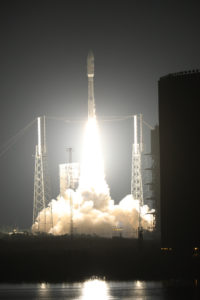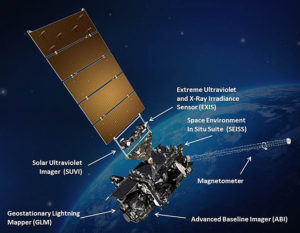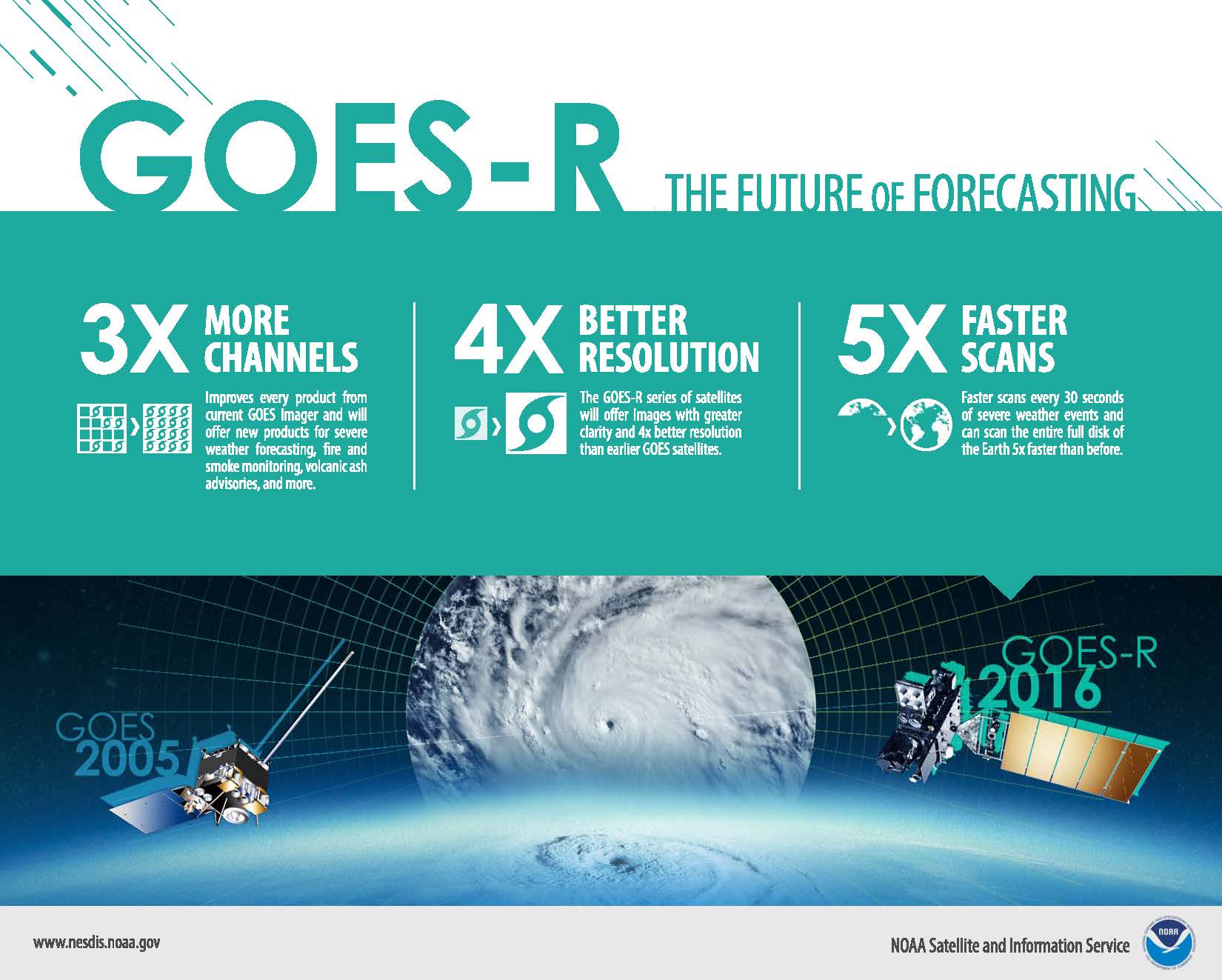On November 19, NASA celebrated the successful launch of its latest weather satellite, the revolutionary GOES-R (named GOES-16 once it is operational). This next generation Geostationary Operational Environmental Satellite (GOES) will deliver better weather forecasting, severe storm tracking, and space weather monitoring for Earth’s entire western hemisphere.

GOES-R Liftoff on November 19

GOES Mission Overview
Positioned roughly 22,000 miles above Earth’s surface, GOES satellites continuously monitor the Western hemisphere, including the United States, the Pacific and Atlantic oceans, Central and South America, and Southern Canada. GOES satellites fly in a geostationary orbit, meaning they rotate around the Earth at the same rate as the Earth spins, so their view of the Earth’s surface never changes. The coverage, along with the sensor suite, allows for constant, near real time coverage of Earth’s weather, climate, and large storm events. GOES also has sensors looking toward the sun and space, measuring solar and space weather.
Why the GOES-R Satellite is Significant

The most exciting update to GOES-R in relation to disaster intelligence is the updated Advanced Baseline Imager (ABI). The image above describes the improvements to the new sensor. Below are the benefits related to these improvements.
- Improved hurricane track and intensity forecasts
- Improved route planning for aviation
- More advanced warning for severe storms
- More advanced warning for air quality warnings and alerts
- Better fire detection and intensity estimation
- More and better quality data for long-term climate variability studies
This is only one of several next-generation advanced sensors onboard GOES-R. Other sensors will help researchers study tornado warnings, climate, and space and solar weather. It’s no wonder that people are excited about this momentous launch!
Source(s):
https://www.nesdis.noaa.gov/content/6-reasons-why-noaa%E2%80%99s-goes-r-satellite-matters



